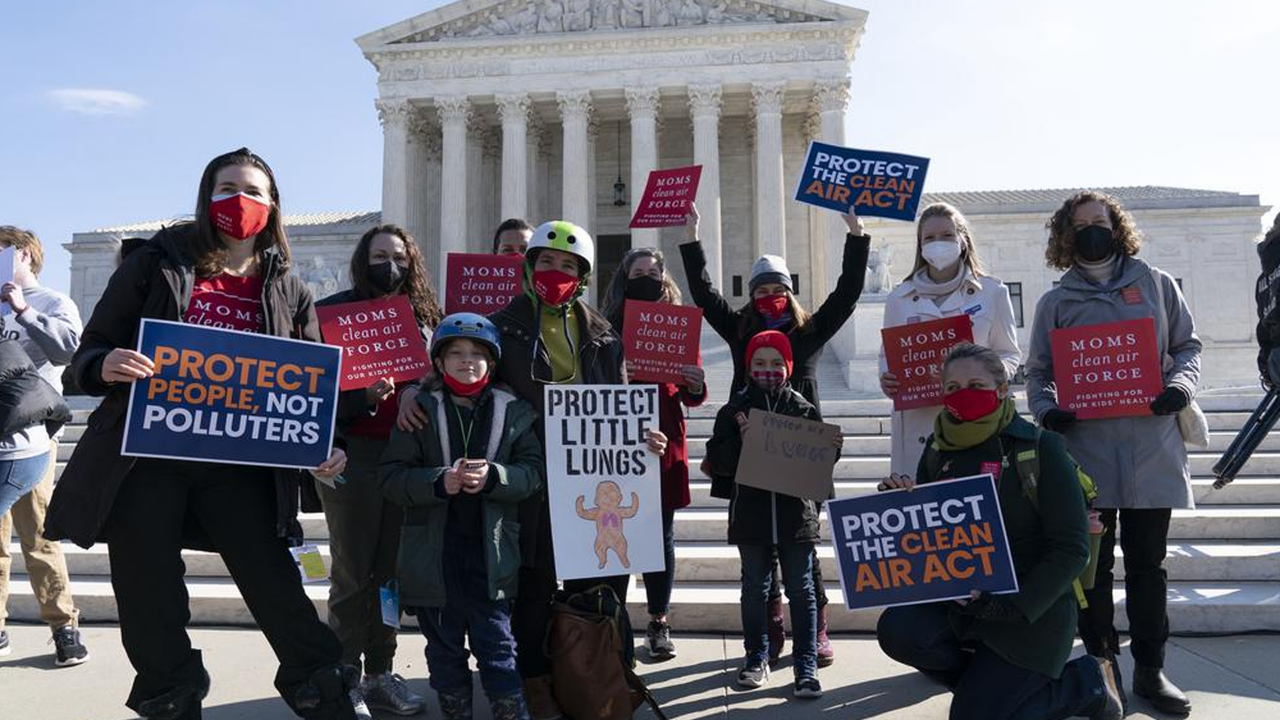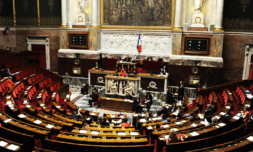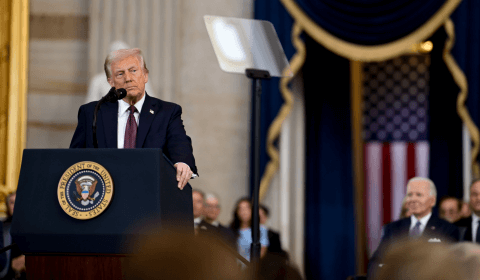The Environmental Protection Agency’s (EPA) ‘Good Neighbour’ plan has been scrapped, signalling a dire shift away from green initiatives in US politics.
Just weeks after the US presidential debate between Joe Biden and Donald Trump omitted any mention of global warming – despite it being a significant concern amongst Americans – the Supreme Court has blocked the EPA’s ‘Good Neighbour’ plan.
The ‘Good Neighbour’ regulation aimed to slash ozone emissions by requiring ‘upwind’ states to reduce emissions that affect the air quality in ‘downwind states’.
Nearly a decade ago, the EPA issued new air-quality standards for ozone pollution, which can cause major health problems when presented at high levels.
Its rejection has sparked significant controversy and online discussion, but despite government failures to progress green legislation there remains a sense of resilience and determination amongst US netizens.
The decision halts a critical regulation aimed at reducing smog-causing emissions from power plants and industries in 23 states, an effort that was projected to save thousands of lives and prevent millions of asthma attacks annually.
Despite this setback, the conversation on social media reveals a strong and hopeful community ready to continue the battle for environmental justice.
Activists and environmental groups are leveraging platforms like Instagram to voice their concerns and rally support for stricter pollution controls. Others are finding ways to make light of what is undeniably a depressing turn of events.
On Thursday, #SCOTUS used the Shadow Docket to put a stop on the EPA’s Good Neighbor Plan.
Increased use of the Shadow Docket to hand down decisions, particularly on high impact cases, has led to a rise in ethical concerns surrounding its use by the Court. pic.twitter.com/VTqNyEKWG9
— Earthjustice Action (@EarthjusticeAct) July 2, 2024
‘The men have decided we don’t need air,’ jibed one Instagram user.
Another simply said ‘this court is a joke’.
Earthjustice’s senior vice president, Sam Sankar, has been vocal about the ruling’s implications, stressing that it endangers public health and undermines decades of environmental progress.
‘With this decision, the Supreme Court has abandoned any pretence of neutrality in cases involving environmental regulations’ Sankar said.
‘The Court’s right-wing Justices took more than eight months to work on this ‘emergency’ stay request, but they still couldn’t come up with a single solid legal justification for this extraordinary order.’
The court’s decision has drawn sharp criticism from environmental advocates and health organisations. Justice Amy Coney Barrett‘s dissent, joined by the Court’s liberal justices, emphasised that the majority’s decision leaves many states free to contribute to downwind pollution problems, highlighting the potential for significant health repercussions.
The online discourse also points to the broader pattern of recent Supreme Court decisions that have challenged federal environmental regulations.
Last year, the Court restricted the EPA’s authority to regulate carbon emissions from power plants, and more recently, it curtailed protections for wetlands.
Arguments against these sustainable programs have largely centred around the EPA’s capacity to see them through.
In the case of the ‘Good Neighbour’ initiative, Justice Neil Gorsuch explained that while the plan would improve air quality in ‘downwind’ states, the EPA’s potential failure to properly regulate it could infringe on the states’ interests ‘in regulating their own industries and citizens’.
He added that the costs of enforcing such regulation could reach ‘hundreds of millions, if not billions of dollars.’
But these lacklustre responses from the Supreme Court have only served to galvanise a new wave of activism online, with many young people stepping up to demand robust climate action.
The conversation on social media continues to inspire hope and action. Influencers, environmental organisations, and everyday users are calling for increased awareness and advocacy, stressing that individual and collective efforts are crucial.
This dynamic online community is a testament to the enduring spirit of those committed to fighting for a healthier planet.
The setback in the Supreme Court is a reminder of the challenges ahead, but also provides a vital burst of motivation for those who believe in the power of collective effort to drive meaningful change.
One can only hope that through continued advocacy, education, and community support, progress toward a healthier planet will eventually prevail.

















